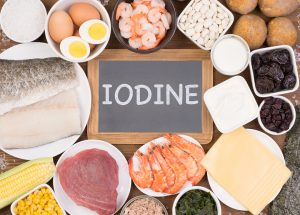Is drinking Coke safe during Pregnancy?
When you’re drinking for two, you probably shouldn’t be toasting your good news with a glass of champagne. But if you’re looking for a good bubbly beverage to drink, is soda a good replacement?
Not necessarily. Soda can be tricky. Go ahead to read how safe is coke during pregnancy.
Nutritional Value of Coke
So mainly coke consists of:
-
Sugar
-
Carbon Dioxide – making it acidic in nature
-
Caffeine
-
Artificial sweeteners
-
Preservatives
Many flavors, including colas, some root beers, and Mountain Dew, contain caffeine — and most experts recommend having no more than 200 milligrams of caffeine per day. You’d have to drink a lot of soda every day; there are 71 milligrams in a 12-ounce serving (about one can of soda), and most caffeinated sodas come in below that. In fact, a Diet Coke has 47 milligrams — and the FDA won’t allow sodas to have more than that per 12-ounce serving — so you’d have to drink more than 50 ounces (a little more than four cans of soda) to surpass the recommended caffeine limit.
Sweeteners in the coke
Then there’s the sweetener. Don’t be fooled by Zero sugar or diet coke labels which give the impression that they don’t have sugar. Most of the aerated soft drinks comes soft drinks come with artificial sugars. Full-sugared varieties fill you with chemicals and empty calories. (And chemicals and extra calories that don’t give you any nutrition are a pretty poor choice when you want to deliver every possible nutrient to your baby and avoid excess weight gain.) Diet sodas, which contain artificial sweeteners such as aspartame, could also affect a growing fetus.
Some of the commonly used sweeteners are:
-
Aspartame (NutraSweet)
– It is a safe sweetener, but you should consume it in a moderate quantity. In fact, studies have shown that a pregnant woman should avoid this sweetener as it could also cause depression or chronic pain.
-
Sucralose (Splenda)
– This is just a modified version of table sugar and pretty much safe during pregnancy.
-
Saccharin (Sweet and Low)
– This sweetener can cross the placenta and is considered to be safe for the baby but again you should be taking it in a moderate quantity.
The Side Effects Of Exceeding The Permissible Limit Of Coke
Caffeine present in the coke, which is present in a woman’s body in the indigestible form, reaches through the placenta, and and the baby absorbs it completely. Studies have shown that the body of a pregnant woman, caffeine is present up to 11 hours. But the fetus can retain it until 100 hours, for the simple reason that they are developing babies and don’t have necessary enzymes to detoxify and break down caffeine.
For the pregnant woman, if she is exceeding the daily measure of coke, it could result in:
- Dilated pupils
- Opening of bronchial tubes
- Increase in heart rate
- Higher blood pressure
- Discharge of insulin into the blood stream from the liver
- Tightened muscles
- Higher metabolism
- Could result in Miscarriage
- Reduced Fertility
- Diuretic in nature and makes our body lose water.
- Insomnia
Also, for the fetus it has an adverse effect as it could lead to:
- Birth Defects
- Pre-Term Delivery
- Low birth weight
Need some alternatives to Coke during Pregnancy?
- Fresh fruit juice
- Lime water
- Lassi [sweet and salted]
- Aam pana or raw mango water
- Coconut water
- Homemade smoothies
The bottom line? Drinking soda when you’re pregnant may not be the best thing for you — but it certainly isn’t the worst. There’s no measurable risk to having an occasional soda. Although it’s always better to consult with your doctor before you proceed with consumption of anything that you are not sure about.
Also read – Importance and side effects of Vitamin C during Pregnancy













